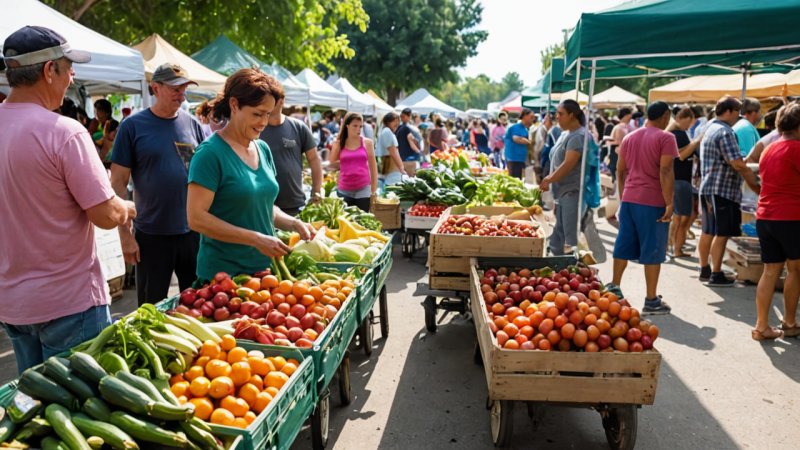The significance of local food systems in poverty alleviation cannot be overstated. They serve as a crucial link between agricultural production and the communities that consume the food. By focusing on local food systems, we can enhance food security, improve nutrition, and foster economic growth within communities. This article explores five compelling reasons why local food systems are essential in the fight against poverty, and how you can get involved in promoting these initiatives.
1. Enhancing Food Security
Local food systems play a vital role in ensuring that communities have access to nutritious food. By sourcing food locally, communities can reduce their reliance on global supply chains, which are often vulnerable to disruptions. This leads to a more stable food supply and helps mitigate the effects of food deserts. Local food initiatives can:
- Support community gardens and urban farming.
- Encourage farmers' markets that provide fresh produce.
- Promote food co-ops that offer affordable options.
2. Boosting Local Economies
Investing in local food systems directly benefits the local economy. When residents purchase food from local farmers and producers, the money circulates within the community, creating jobs and stimulating economic growth. Local food systems can:
- Support small-scale farmers and artisans.
- Generate employment opportunities in food production and distribution.
- Encourage local entrepreneurship through food-related businesses.
3. Promoting Sustainable Practices
Local food systems often prioritize sustainable agricultural practices that are environmentally friendly. This approach not only helps preserve the land for future generations but also reduces the carbon footprint associated with transporting food over long distances. Sustainable practices can include:
- Organic farming methods that reduce chemical use.
- Permaculture techniques that enhance biodiversity.
- Community-supported agriculture (CSA) models that connect consumers directly with producers.
4. Strengthening Community Bonds
Local food systems foster a sense of community and belonging. They create spaces where people can come together, share knowledge, and support one another. This social cohesion is particularly important in low-income areas, where community ties can be weak. Strengthening bonds can involve:
- Organizing community potlucks featuring local ingredients.
- Hosting workshops on cooking and nutrition.
- Creating volunteer opportunities in community gardens.
5. Educating About Nutrition and Health
Local food systems provide an excellent platform for educating communities about nutrition and health. By emphasizing the importance of fresh, locally sourced food, communities can combat diet-related diseases and improve overall wellbeing. Educational initiatives can include:
- Offering cooking classes that focus on healthy recipes.
- Conducting nutrition workshops in schools.
- Providing resources on food preservation and preparation techniques.
In conclusion, local food systems are a powerful tool for poverty alleviation, enhancing food security, boosting local economies, promoting sustainable practices, strengthening community bonds, and educating about nutrition. By supporting these systems, we can make a significant impact on the lives of those in our communities. Get involved by visiting local farmers' markets, advocating for community gardens, or volunteering with local food initiatives. Together, we can build a healthier, more equitable future for all.






